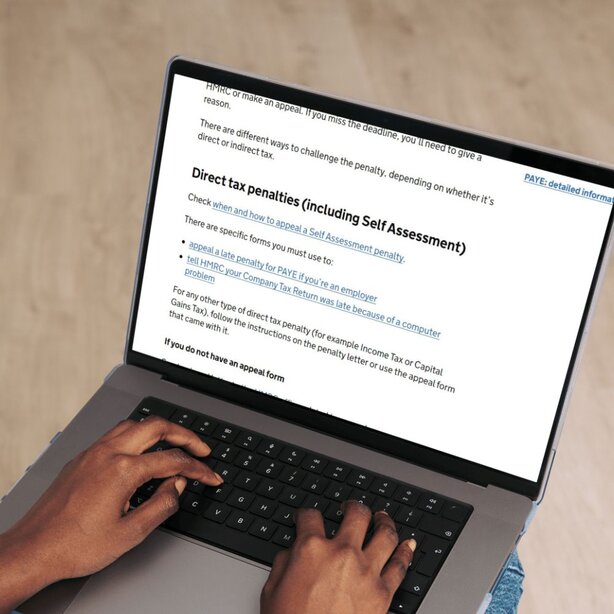Understanding HMRC Appeals

Are you a taxpayer in the UK, puzzled about how to appeal a decision made by HMRC? Worry not! We've got you covered with a comprehensive guide on navigating this process.
Understanding HMRC Decisions
When you receive a decision from HMRC that you disagree with, it's crucial to understand the components involved in the appeals process:
This is the formal notification you receive from HMRC detailing their conclusions regarding your tax affairs. It's important because it marks the starting point of the appeal process.Notice of Decision
These are the specific reasons why you believe the HMRC decision is incorrect. Understanding these grounds is crucial as they form the basis of your appeal.Grounds for Appeal
HMRC typically gives you 30 days from the date of the decision notice to file your appeal. Missing this deadline can jeopardise your chances of a successful appeal.The Appeal Deadline
How to Appeal an HMRC Decision
Follow these steps to file your appeal seamlessly:
Carefully read the decision notice to understand HMRC’s reasoning and compare it against your tax returns and records.Review the Decision

Clearly outline the reasons why you believe the HMRC decision is incorrect, citing relevant tax laws and evidence.Identify Grounds for Appeal

Collect all necessary documentation that supports your grounds for appeal, such as receipts, financial statements, and email correspondences.Gather Supporting Documents

Fill in the appropriate forms required for the appeal. This usually involves the Notice of Appeal form which can be obtained from the HMRC website.Complete the Appeals Application

Submit your completed forms and supporting documentation to HMRC within the specified timeframe. Ensure you get a confirmation of receipt.Submit Your Appeal

What If Your Appeal is Rejected?

Option 1: Tribunal Appeal
If HMRC rejects your initial appeal, you can take the matter to the First-tier Tribunal (Tax). This is a formal process where an independent tribunal reviews HMRC's decision. Both you and HMRC will have the chance to present evidence and arguments. Although it's more formal, the tribunal offers a fair opportunity to challenge HMRC’s decision.
Option 2: Alternative Dispute Resolution (ADR)
Alternatively, you can resolve the dispute through Alternative Dispute Resolution (ADR). ADR involves a neutral mediator who helps both you and HMRC find a mutually agreeable solution, avoiding the need for a tribunal. This process is usually faster and less formal, making it a good option if you're looking for a quicker resolution without the complexity of legal proceedings.

Additional Considerations

Ensure all your documentation and arguments are well-prepared before the deadline. Proper preparation can make a significant difference in the appeal process.Prepare Documentation

Keep a record of all correspondence with HMRC during the appeal process. This helps track deadlines, responses, and serves as key evidence in case of disputes.Communication Records

Consulting a tax advisor can provide valuable guidance. They can clarify complexities and increase your chances of a successful outcome.Seek Professional Advice
Expert Assistance with Pie
Navigating the HMRC appeals process can be complex, but with PieTax, you have access to expert assistance that can guide you through the process. Our step-by-step support and easy-to-use software make it simple. Get started with PieTax today to protect your rights and simplify your tax journey.

30% of all HMRC decisions are successfully appealed each year.

60 days is the average time taken for HMRC to respond to an appeal.
Frequently Asked Questions
What types of decisions can I appeal against HMRC?
You can appeal against decisions regarding tax returns, penalties, and notices of enforcement actions.
Is there a fee for filing an appeal with HMRC?
No, there is no fee for filing an appeal directly with HMRC.
Can I appeal an HMRC decision after the 30-day deadline?
Yes, but you may need to provide a valid reason for the delay, and the acceptance of the appeal is at HMRC's discretion.
How do I know if my appeal has been received by HMRC?
HMRC will send you a confirmation receipt once they have received your appeal documentation.
What should I do if I lose my appeal?
If you lose your appeal, you can consider taking the case to the First-tier Tribunal (Tax) or seeking an Alternative Dispute Resolution.




